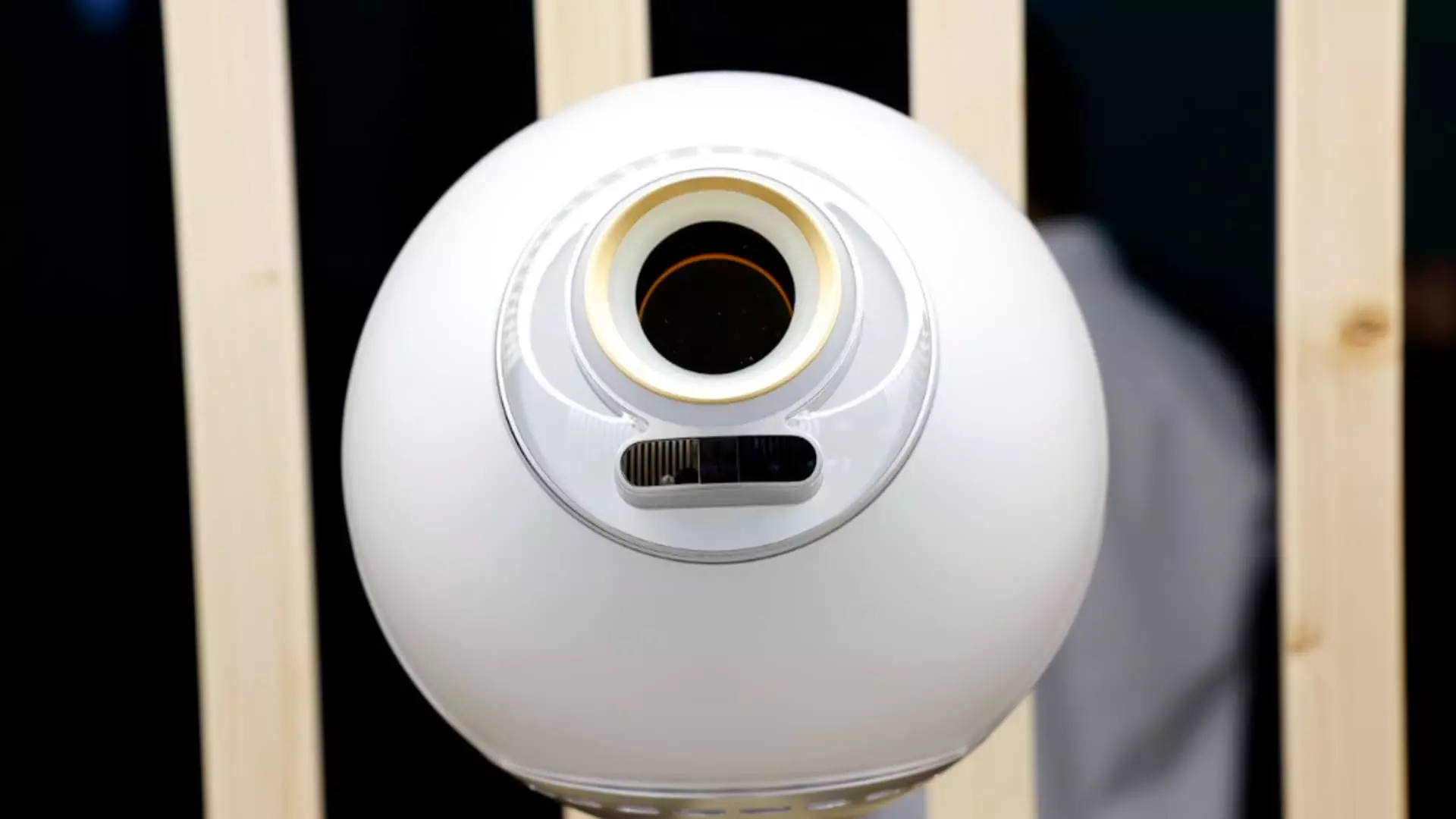As we tread deeper into the digital age, technological innovations continually reshape our lives, often with consequences we can’t promptly foresee. Among these, the promising yet perilous rise of biometric identity verification looms large. World, a project co-founded by OpenAI CEO Sam Altman, recently unveiled its eye-scanning biometric technology, known as Orb, scheduled to launch in the UK. While some hail it as a necessary measure to combat the rising threat of artificial intelligence misuse—like deep fakes—more ominous concerns lie beneath the surface. One cannot overlook how this technology may not just serve as a tool for validation but may inadvertently propel privacy erosion into the forefront of our societal framework.
The Allure of Quick Fixes
From the onset, World touts a compelling commercial aim—creating a streamlined, foolproof method of human verification that transcends conventional barriers in banking, gaming, and various online applications. The Orb scans one’s iris and face to generate unique identification codes, thus allowing users access to diverse platforms via an anonymous identifier known as World ID. But this zeal for expediency forgets a foundational truth: rapid advancements in technology rarely align neatly with the ethical and regulatory frameworks necessary to govern them. These biometric systems promise to safeguard against fraud, yet they may also cultivate new avenues for abuse and exploitation under the guise of securing our identities.
A Fragile Dance with Trust
As the project begins its rollout in city after city—London, Manchester, Birmingham, and beyond—questions regarding user trust loom large. Adrian Ludwig, chief architect of Tools for Humanity, asserts that demand for such technology is surging among both enterprises and governments. But the rising acceptance of biometric verification technologies is troubling. What follows is a dangerous game of balancing trust against privacy, and as history has shown us, governmental entities often err on the side of expansive power. The spectators to this unfolding drama must grapple with the question: Does trust built on technology that could ultimately surveil and track citizens bolster the regulatory interests of governments, or does it hinder our very liberties?
Ethical Considerations of Data Handling
Although World advocates for rigorous protocols, such as encrypting biometric data and deleting the original records, the threat of misuse remains unabated. In a world teeming with data breaches and cyberattacks, can any assurance be deemed sufficient? The nature of biometric data is such that it cannot be easily changed or revoked once compromised. The allure of decentralized verification systems, when pitted against the specter of centralized abuse, feels like a gamble with our very essence at stake. Acclaim for the purported privacy safeguards might hold sway, yet those protections could very well prove feeble in practice.
The Evolving Landscape of Fraud
Ludwig’s statement that AI systems are increasingly breaching existing authentication measures underscores a fundamental requirement for innovation. However, the path to safety paved by such innovations raises additional alarms. By enhancing identity verification, are we just shuffling the problem around, allowing bad actors to develop more sophisticated methods of exploitation? Once trusted verification pathways become mainstream, we could witness an escalation in the arms race between sophisticated fraud techniques and authentication technologies. With World eyeing a massive scalability plan to augment the currently verified 13 million users, the question remains: Are we merely creating an even bigger target for the very fraud we seek to diminish?
Government Regulation and Surveillance
Though World engages with regulators, one must ask: do these conversations genuinely seek to fortify individual privacy, or do they merely provide a facade for expanded state oversight? The discussion around identity verification, particularly within government frameworks, often gets mired in bureaucracy, leading to a net loss of agency for the citizenry. Consider the case of India’s Aadhaar initiative, which has sparked intense debate about its implications for social inequality and privacy rights. Ludwig may express optimism, yet the cautionary tales of governmental overreach linger ominously in the background.
The Cost of Convenience
As World ventures towards transforming biometric verification from a theoretical concept into a tangible network, we must critically consider the societal implications. The notion that convenience—a quick, hassle-free path to identity validation—trumps the individual right to privacy is inherently flawed. A world that demands our biometric signature as proof of existence, as we scurry to satisfy the insatiable needs of modernity, stands to lose far more than it gains. Amidst the shades of technological advancement lies a haunting reminder: With each new layer of convenience, we chip away at the robustness of our own freedoms.

